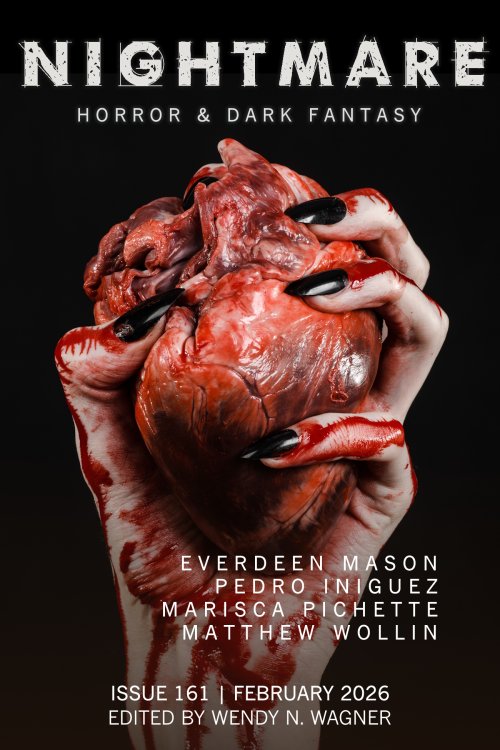I read this story without noticing the title at first, and found myself thinking “This writer is absolutely channeling Notes from Underground.” You evoked the voice of the Underground Man incredibly well. What made you choose this work as the inspiration for this story? What drew you to it?
Thank you! Yes, it’s absolutely channeling Notes from Underground. It’s a weird little book, half manifesto and half character study. The Underground Man’s caustic attitude, his lonerism, his entire psychological profile were thought out and explained in the first half, without the story ever feeling like a drag. So, my story partly began as a formal exercise, trying to emulate Dostoevsky. But the other part is that, while it was interesting to tune into the Underground Man’s absurd neuroticism as an objective observer (i.e., reading the novella like a pitch-black cringe comedy), there was an uncomfortable part of me which also found him relatable—awkward and downtrodden in a way I felt during my teenage years, when I was young and unwell. As I kept writing, the story became more about that.
I read this story as an exploration of mental illness, the ways in which an unwell mind can harm a body. Is this what you intended when you wrote this?
That was certainly a part of it. In keeping with the Notes from Underground inspiration, I think it’s also trying to capture something about cycles of maladapted thinking, and inescapable unwellness; and maybe something about the ways in which an unwell mind can interpret and intuit and mutate relationships and interactions with others. But these ideas are easier to pick out after the fact, and I feel strange talking about them as if I did it all on purpose; I’m not much of a planner or a plotter. I felt my way through it.
The woman who visits him in the hospital comes seeking comfort in her offer to comfort him. It is this brief and vulnerable connection that seems to offer him the most relief out of anything, more than the attention received when the graft failed in the lecture hall. Why was this moment important to you for this story?
There are two major events in the story—the lecture hall, and the visit from the faceless woman. The lecture hall is a clear manipulation on the Brain’s behalf. He’s tricked himself into believing that these people cared about him, felt genuine concern for him, but the trick is pretty obvious. The reality is that he traumatized a room full of people for his own emotional satisfaction.
But the faceless woman comes with a veneer of care (which could also be pity, or pure self-interest). She offers support. She holds his hand. It’s easier, then, for the Brain to reinterpret the interaction, to trick himself into believing that she really did see something worthwhile in him, something worthy of affection. Even if she never comes back, he can hold onto that memory. I think, by the end of the story, he is very forthright with the idea that he has purposefully misinterpreted these events. But he gives himself the license. He allows himself to indulge in a bit of fantasy. That’s my thought on it, at least, though it’s pessimistic. Maybe a different reader will see it in a different way.
Although the mind stresses that the body is better off without it, we see that this may not be so: living in walls, eating from the trash, chased by the police. What are you hoping readers take away from this tension?
I think this is a story about thinking too much. Stop thinking and you become less human, more like an animal; that involves scars, and predators, and living outdoors, and for certain animals it sometimes involves eating garbage. But there are quite a lot of animals content with their lot and much fewer happy people. The sentiment is a bit of a cliché, but hell, maybe they really do have something good going for them. Or maybe the grass just looks greener from over here.
Do you have any future work that readers can look forward to? Where can we find more of your work?
I’m always working on something, but I’ve got nothing new to report just yet. If you’d like to read more of my work, you can find my stories in the anthologies Why Didn’t You Just Leave, published by Cursed Morsels Press, or Death in the Mouth, Vol. II, published by Sloane Leong and Cassie Hart. Both collections are full of incredible authors and illustrators, and I’m beyond honored to share the space with them. You can also follow me on Instagram: @rmartinez46.







